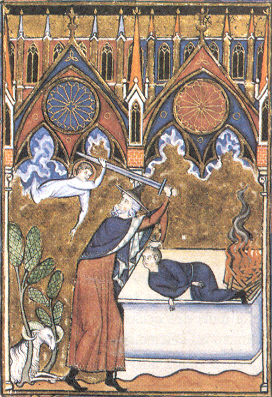What's Elsie Mae's "Storybook" Theme?
 |
| Not a "Storybook Day" photo - but Elsie Mae with her teacher this year. Our family is ALWAYS thankful when one of the kiddos gets Mrs. Dumont for a teacher. Just ask Rebekah and Nadia! |
 |
| Not a "Storybook Day" photo - but Elsie Mae with her teacher this year. Our family is ALWAYS thankful when one of the kiddos gets Mrs. Dumont for a teacher. Just ask Rebekah and Nadia! |
As he passed by, he saw a man blind from birth. And his disciples asked him, “Rabbi, who sinned, this man or his parents, that he was born blind?” Jesus answered, “It was not that this man sinned, or his parents, but that the works of God might be displayed in him. We must work the works of him who sent me while it is day; night is coming, when no one can work. As long as I am in the world, I am the light of the world.” Having said these things, he spit on the ground and made mud with the saliva. Then he anointed the man’s eyes with the mud and said to him, “Go, wash in the pool of Siloam” (which means Sent). So he went and washed and came back seeing.
The neighbors and those who had seen him before as a beggar were saying, “Is this not the man who used to sit and beg?” Some said, “It is he.” Others said, “No, but he is like him.” He kept saying, “I am the man.” So they said to him, “Then how were your eyes opened?” He answered, “The man called Jesus made mud and anointed my eyes and said to me, ‘Go to Siloam and wash.’ So I went and washed and received my sight.” They said to him, “Where is he?” He said, “I do not know.” (John 9.1-12)
"...the first of these questions, whether the man himself had sinned before he was born, which might be the occasion of his blindness, proceeds not upon the doctrine of original sin, though the Jews then believed that; since that was common to all men, and therefore could not admit of such a question; but either upon the notion of transmigration of souls into other bodies; and so the disciples might ask whether this man had sinned in a pre-existent state when in another body, which was the reason of this blindness, or of his being put into a blind body. This notion, Josephus says (a), was embraced by the Pharisees; though, according to him, it seems, that they only understood it of the souls of good men; and if so, this could lay no foundation for such a question, unless these disciples had given into the Pythagorean notion of a transmigration of all souls, which was to be known by defects, as blindness, &c. (b); or else this question proceeded upon a principle received by the Jews, that an infant might do that which was faulty and criminal, and actually sin in the womb: the second question proceeds upon the methods which sometimes God has taken with men, by visiting the iniquities of the fathers upon the children; or, as the above learned writer observes, upon a notion the Jews had, that a child might suffer for what the mother did whilst it was in the womb; or on another, which prevailed among them, that there should be neither merit nor demerit in the days of the Messiah; that is, that neither the good deeds, nor bad deeds of their parents, should be imputed to their children, neither the one to their advantage, nor the other to their disadvantage: and therefore since he the Messiah was come, they ask, how this blindness should come to pass? what should be the reason of it?7. The first word of Jesus' response: "Neither..."

"One of the main reasons [insert your country... county... city... name here]'s churches are not ministering to a larger number of people is because they typically wait for people to come to them.... Many congregations seem to have become ends in themselves. They exist for each other and become preoccupied with themselves and their'way of 'doing' religion. Lay ministry means nothing more than getting involved in running the church." (Dr. Reginald Bibby, Transforming Our Nation: Empowering the Canadian Church for a Greater Harvest, p. 302, 300-301)
 |
| Abraham e Isaac. Salterio de San Luis, siglo XIII (Biblioteca Nacional, París) |